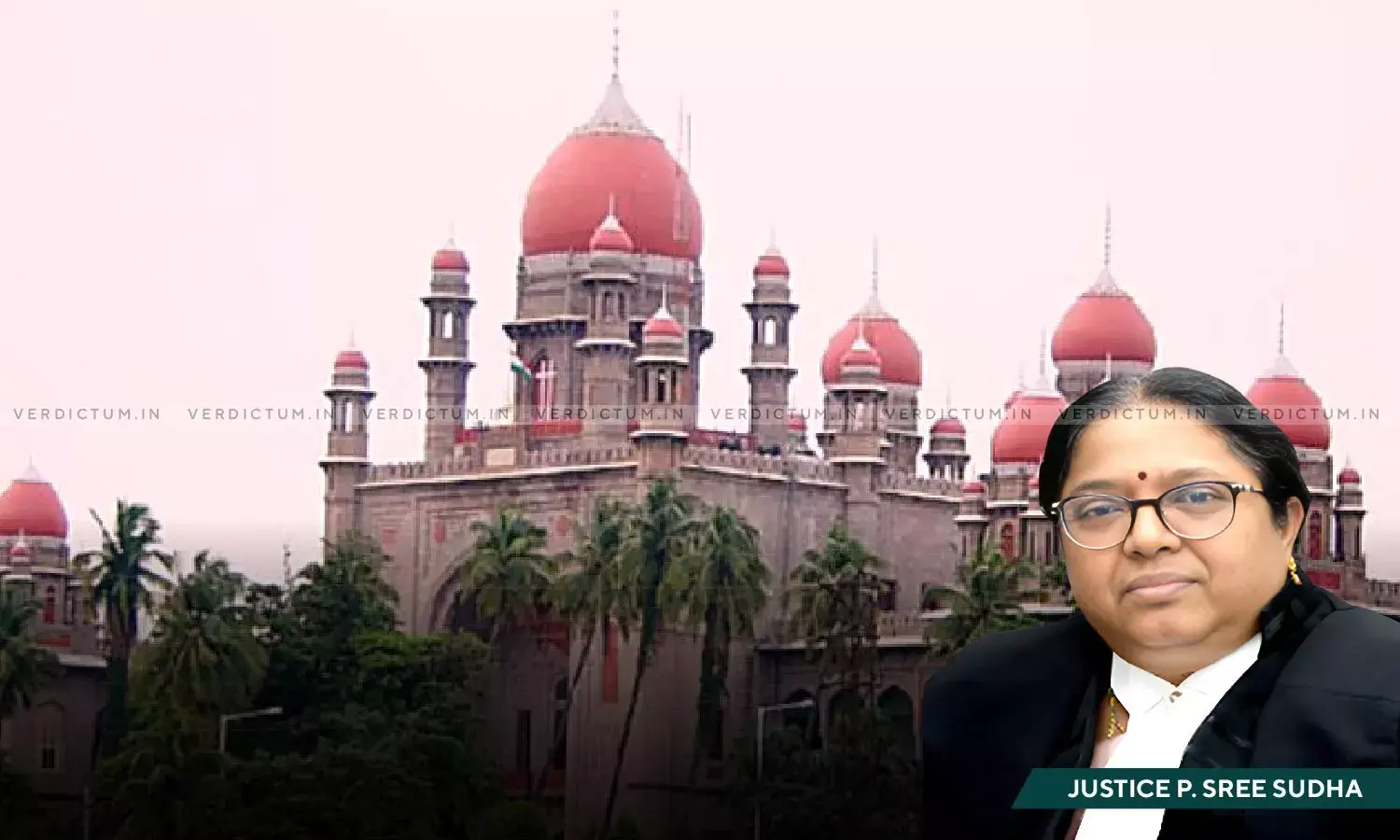Mother Has No Legal Right To Relinquish The Property Rights Of Her Minor Children- Telangana High Court

A Telangana High Court Bench of Justice P Sree Sudha has reiterated that unless a registered instrument has been executed and acted upon and the same has been proven in a Court of law through public documents, no plea of relinquishment or partition can be set up to deny the share of a coparcener.
This Judgment was delivered while upholding the equal rights of daughters as sons in ancestral property. In that background, the Court held that a mother cannot legally relinquish property rights on behalf of her minor children.
In that context, it was said that, "Though the Panchayat elder was examined as D.W.2 and he stated regarding receiving of Rs.30,000/- by P.W.2, no document was executed by P.W.2 regarding the same. It cannot be presumed that the said amount was paid regarding the share of properties of the defendant and there is no other evidence to prove the oral relinquishment of the plaintiffs. Even if it is presumed that P.W.2 received Rs.30,000/- and purchased the properties under Exs.B1 and B2, it cannot be said that she received the said amount towards shares of plaintiffs and relinquished their right of partition. She cannot relinquish the right of minors without their consent or knowledge."
In this case, the plaintiffs were the daughters of the defendant, who approached thee Court to seek their rightful share of ancestral properties. The defendant claimed that the plaintiffs' mother had voluntarily left him and the village Panchayat had decreed that he pay Rs. 30,000/- to the mother in exchange for her share in the property.
The High Court relied on the Vineeta Sharma Vs. Rakesh Sharma and others case, which provided that Section 6 of the Hindu Succession Act 2005 intends to only accept the genuine partitions that might have taken place under the prevailing law, and are not set up as a false defence and only oral ipse dixit is to be rejected outrightly.
Noting that there was no dispute regarding the relationship between the parties, the Court observed that, "Plaintiffs filed suit for partition and as per the amendment to Section 6 of the Hindu Succession Act, daughters are also equally entitled for the share in the properties of father along with sons. In this case, as defendant has no other sons, plaintiffs are equally entitled for share in the properties of their father. The contention of the defendant that he already paid Rs.30,000/- to P.W.2 towards maintenance and also towards share of the plaintiffs in his properties cannot be accepted. It can be presumed that he might have paid amount to P.W.2 towards permanent alimony."
The Court also stressed that the mother has no right to relinquish the share of her minor children.
Resultantly, the appeals were allowed. No orders were passed as to costs.
Case Number: Smt.T.Vijaya v. Sri Turkapalli Mallaiah

